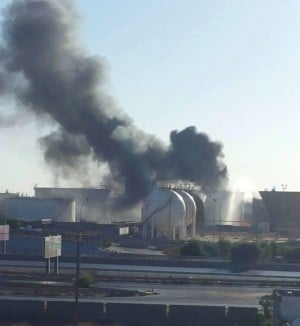
Tunis, 5 December 2015:
The Libyan oil sector is plunging toward complete disintegration after four years of war, risking economic collapse within the country and new refugee flows for Europe, the International Crisis Group warns in a report published last week.
Crisis Group’s report, The Prize: Fighting for Libya’s Energy Wealth, is based on two years of field research across a country torn by factional fighting. The report documents the contest for control over the oil sector’s physical infrastructure and the country’s financial institutions.
It recommends urgent action to halt a looming financial disaster and improve security. “Political infighting has enabled the rise of powerful militias and radical groups, including the Islamic State, which are seeking to control the country’s oil and gas facilities”, says Claudia Gazzini, Crisis Group’s senior analyst for Libya.
“Protecting the core institutions charged with managing Libya’s resources is essential to avoid further chaos and fragmentation of the state”. Libya has been governed by two rival factions ever since July 2014, with an internationally recognised parliament based in the eastern city of Tobruk and competing authorities based in the capital, Tripoli. Each faction is fighting for control over key institutions, including the Central Bank of Libya, the National Oil Company and the Libyan Investment Authority.
These institutions jointly control up to $130 billion of assets and hold the technocratic expertise critical to rebuilding the Libyan state. A UN-brokered deal to form a government of national accord has not been signed by the two factions, and negotiations are stalled.
“The parties must break the political impasse by taking concrete action to resolve the festering economic and security issues at the heart of the crisis”, says Issandr El Amrani, Crisis Group’s project director for North Africa. “A wider economic breakdown would likely harm millions of people in Libya, spur greater refugee flows, and create new security threats across the region”.
The report recommends that the UN-led negotiations prioritise two separate tracks on economic and security issues, in parallel to ongoing political discussions. International actors – including foreign governments, the International Monetary Fund, and oil and gas companies – must help maintain the integrity of Libya’s core financial institutions and block oil sales outside official channels.
Security discussions should focus on efforts to broker local ceasefires where possible and tackle the issue of armed groups guarding oil facilities. [/restrict]







